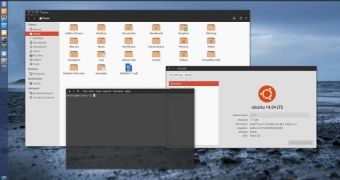A number of Linux kernel vulnerabilities discovered in the Linux kernel affecting the Ubuntu 14.04 LTS (Trusty Tahr) operating system have been fixed by Canonical.
Besides all the packages that are updated during a maintenance cycle of an operating system, the Linux kernel also receives regular new versions that usually take care of vulnerabilities and other problems. This is rarely done to introduce new features, but users should upgrade nonetheless.
“A flaw was discovered in the handling of network packets when mergeable buffers are disabled for virtual machines in the Linux kernel. Guest OS users may exploit this flaw to cause a denial of service (host OS crash) or possibly gain privilege on the host OS.”
“A flaw was discovered in the Linux kernel's ping sockets. An unprivileged local user could exploit this flaw to cause a denial of service (system crash) or possibly gain privileges via a crafted application,” reads the official security notification.
These are just two of the vulnerabilities closed by this update, which should arrive on the regular channels when using the Software Updater.
The security flaws can be fixed if users upgrade the system(s) to the linux-image-3.13.0-27-generic, (3.13.0-27.50), but this is only true for Ubuntu 14.04 LTS (Trusty Tahr). Other operating systems feature different Linux kernels and the versions will be different.
Upgrading the Linux kernel is not something to be taken lightly. Most of the time, some important fixes are implemented with new versions of the kernel and users should upgrade as soon as possible.
We must also warn users who have manually installed their video drivers. It's possible that you will have to reinstall the kernel headers for the video drivers, especially if you are using NVIDIA hardware and proprietary drivers.
Canonical has pledged to support the operating system until 2019, which means that, if you stick with this distribution, you might be the beneficiary of countless similar updates.
Don't forget to reboot your computer after the upgrade, and be careful. Make sure you save any work you're doing before hitting that button.
ATTENTION: Due to an unavoidable ABI change, the kernel packages have a new version number, which will force you to reinstall and recompile all third-party kernel modules you might have installed. Moreover, if you use the linux-restricted-modules package, you have to update it as well to get modules that work with the new Linux kernel version.

 14 DAY TRIAL //
14 DAY TRIAL //